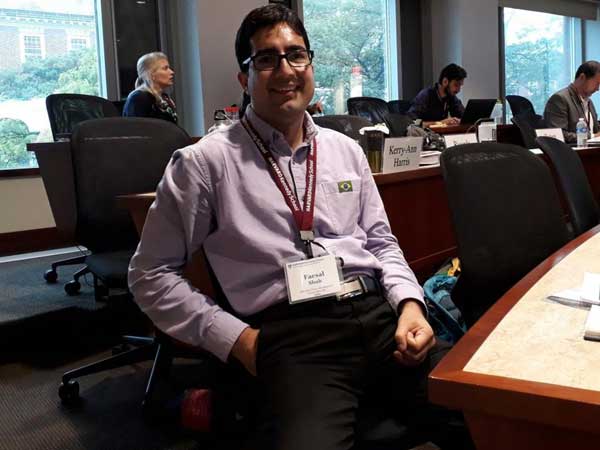
IAS officer Shah Faesal might not have surprised many people for holding some very strong political reasons because bureaucrats are no longer expected to be neutral to party politics, even on the job. However, they would have been surprised by his resignation over them so early in his career, considering he was probably destined for big things in government being the first topper from Jammu and Kashmir in the all-India civil services examination. With the Valley in focus, he said his resignation was over unabated killings in Kashmir, the centre’s purported refusal to initiate a political process in the state and “marginalisation” of “Indian Muslims” — a controversial term in itself in the light of the debate over Muslim India and Indian Muslims once triggered by the late politician Syed Shahabuddin.
It has been a continuing project with governments to get a bureaucracy of their own choice and the government of Narendra Modi is no different. The move to induct joint secretary level officers from the private sector into the civil services through lateral entry with the express purpose of addressing both shortage of talent and status quoism hasn’t got the response that had perhaps been expected. It was meant to attract top talent by bypassing the civil services examination conducted by the Union Public Service Commission. That project has now been extended to create a pool of officers from the central and state civil services for appointment to senior positions in government through lateral entry into the IAS.
The step to bring in people from the private sector – and from outside the UPSC system, which means admission into the civil services might not be wholly based on objective criteria – was almost immediately labeled as an attempt to ‘saffronise’ the bureaucracy. The allegation might not be entirely unfounded. Believing that long years of Congress rule had built an ecosystem in officialdom that was partial to India’s Grand Old Party and the Nehru-Gandhis, the Sangh Parivar had held meetings with private sector employees to introduce them to their politics and beliefs. That was in the run-up to the 2014 elections.
The efforts to rewind the bureaucracy have drawn comparisons with an earlier debate on a so-called committed bureaucracy when Indira Gandhi became prime minister after Lal Bahadur Shastri. That debate followed earlier efforts to bend the civil service to political will. Jawaharlal Nehru was, in the initial stages of his prime ministership, contemptuous of the ICS, the civil service that India inherited from the British. He said that if the ICS officers were meant to bring about the well-being of the people “they had signally failed”. He said “their failure becomes even more noticeable when one sees the enormous distance that separates them in regard to income and standards of living from the masses they are meant to serve”. However, despite his spirited efforts he was unable to “reform” the bureaucracy during the 17 years he was in power.
Indira Gandhi adopted this agenda and it was during her tenure that the idea of a ‘committed bureaucracy’ came be discussed. Against the background of her political legacy, it is tempting to think that this meant a commitment to her government. Indeed, various interpretations suggest that this was indeed so in a roundabout way – the purpose was commitment to the radical changes her government was trying to bring about. It also was meant to bring commitment to the development goals set by the government and to the Indian constitution since the ICS was a creation of the British. As an aside, working on development at the district level also brought politicians and civil servants in close touch and this developed as civil servants and politicians together rose in their careers.
Since then, and keen to have a clear-run in service, especially when faced with aggressive politicians across political parties and states keen to push through their agenda and programmes, civil servants have often aligned themselves with politicians and political parties. It is no secret that political patronage carries several benefits. Faesal is the latest in a long line of civil servants and former civil servants who have taken to politics – some, like former Union minister Yashwant Sinha, joined politics in the middle of their career, while others like TN Seshan turned to politics post retirement.
There is perhaps a case that bureaucrats slow down the government. The policy paralysis of UPA-II in the shadow of a series of scams was as much a result of a weak-kneed government as a bureaucracy that downed the shutters on all decision-making and project implementation. The present government faces a similar challenge of status quoism. What Faesal says about a political dialogue is a fallout from this instinctive status quoism that inhibits political initiative. Meant to give sound advice, and if need be speak truth to power, bureaucrats bog themselves down with an overdose of caution and incrementalism. Modi offered civil servants a protective shield, saying they would not be taken to task for mistakes made in the line of duty. But the reform that he had hoped to bring, especially in the higher bureaucracy, has not borne fruit – and indeed tied down prime ministers since Nehru. A Faesal kind of story is more likely to be a one-off because bureaucrats are not natural risk takers.





